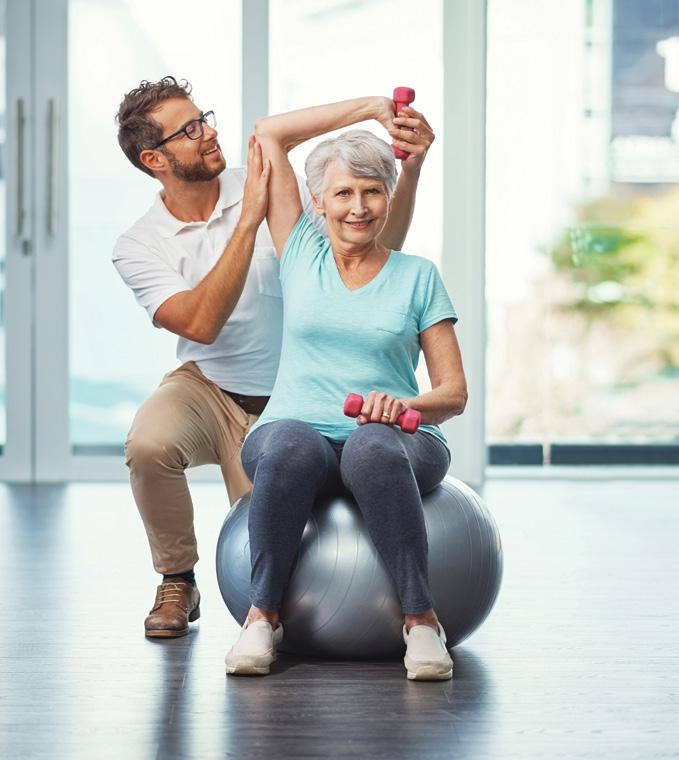PHYSICAL THE R A PY
Motion is key to overall health Get moving today for a better tomorrow Written by DR. MATT DICKS The Centers for Advanced Orthopaedics Robinwood
W
ant to lose weight? Reduce pain? Improve your overall physical health? Motion is key! Many people fail to appreciate the importance of physical activity. Routine exercise has been proven to aid in respiratory function, cardiovascular endurance, strength and overall health. In addition, research shows routine physical activity helps in the prevention of medical conditions such as type 2 diabetes, heart disease and obesity. Physiologically, routine exercise causes our body to produce hormones such as serotonin, norepinephrine and dopamine, which aid in mood enhancement, energy levels and motivation. In addition, exercise stimulates the production of endorphins, which are responsible for reducing the body’s perception of pain. Not convinced? Exercise also improves your mental health, decreases anxiety and improves sleeping patterns. As a physical therapist at The Centers for Advanced Orthopeadics, I find myself treating injuries every day that could have been prevented by a daily exercise routine. Patients are always saying, “I don’t have time to exercise,” “the gym is too expensive,” or “I don’t know where to begin.” Everybody’s activity level and starting point are different.
You should consult your physician or other healthcare professional before starting any new program, especially if you have a history of cardiovascular disease or other chronic conditions. When starting a new routine, it is best to begin with low to moderately intense activities, such as walking, biking, swimming and stretching. Currently, the American Heart Association recommends that adults get at least 150 minutes of moderately intense physical activities per week, taking a brisk walk or bicycling on level ground. That equates to 30 minutes a day, five days a week. If you can tolerate more vigorous activity, or a combination of moderate and vigorous activity, such as running or jogging, then the recommendation is at least 75 minutes per week. That means 15 minutes a day, five days per week. You might need to work your way up to these recommendations. As your tolerance to physical activity increases, your program can advance to include more challenging strength and stability activities. Just remember, it’s never too late to get moving! At the Centers for Advanced Orthopaedics, Robinwood Division, we have highly educated and skilled physical therapists who are here to help improve your overall health and well-being. We specialize in examining and executing an individualized plan to assist in reducing pain, improving mobility and restoring function. So, whether you are recovering from an injury, deconditioned or having trouble getting back to your favorite activities, we are here for you! Dr. Matt Dicks is a physical therapist with the Center for Advanced Orthopaedics, Robinwood Division.
Sometimes, finding the motivation to become more active or to start a new routine can be difficult. Important things to remember when starting a new program:
GETTY IMAGES
✓ Set achievable goals. ✓ Make a schedule that works with your lifestyle. ✓ Start with activities that are familiar and enjoyable. ✓ Decide if you prefer to exercise alone or with a partner or group.












